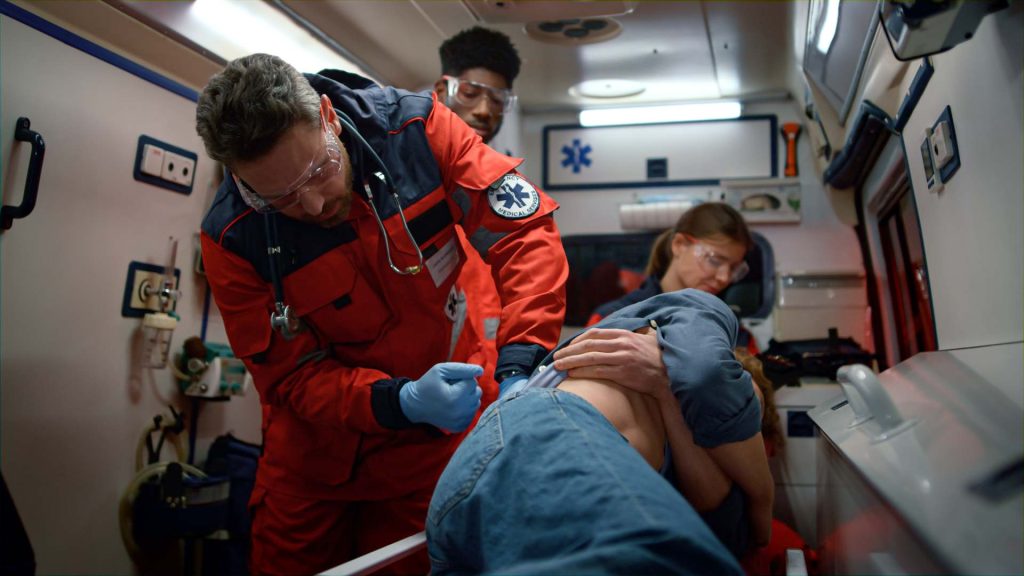The first few moments after a car accident can be incredibly disorienting and traumatic, especially if you have sustained any car accident injuries. Whether you were rear-ended while stopped at a red light or experienced a car accident at a high rate of speed, your body has experienced a trauma as the force of the collision jostles your body.
Even with safety precautions like seatbelts, the impact of the accident can cause your head to jolt back and forth or even slam into the steering wheel or window. This can cause anything from cuts and bruises to blurred vision. If you’ve been in a car accident and experienced blurred vision afterward, this may be a sign of a more serious hidden injury and you may want to seek out whiplash treatment.
Discuss Your Symptoms with a Car Accident Doctor
It is important to seek medical treatment and receive a thorough exam as soon as possible after you have been in a car accident. Some injuries may be more obvious, like scrapes and bruises, but other injuries may take a while to present themselves and you may not notice until the pain increases. That is why you will want to receive a thorough medical exam that assesses your presenting injuries and symptoms as well as checking for any underlying causes for concern.
When you experience blurred vision after a car accident, it is important to describe your experience in detail with your doctor, including when the blurred vision began and how often the symptoms have lasted. In addition, it is helpful to include any other descriptions of pain and discomfort you began experiencing after the car accident. For example, a combination of blurred vision, stiffness in the neck, and headaches after a car accident can help your doctor diagnose or rule out whiplash, as well as prepare you for whiplash treatment, if necessary.
Examination and Diagnostic Imaging Tests
Blurred vision is a symptom of whiplash, an unfortunate but common injury after a car accident, but it is also a symptom of something more serious, like a concussion or traumatic brain injury. That is why you want to seek out medical care from a doctor as soon as possible. Your doctor will likely perform a physical exam and can generally inspect the head, neck, and back to help diagnose whiplash.
In order to rule out head trauma like a concussion or traumatic brain injury, your doctor may want to utilize diagnostic imaging tests for clear images of the affected areas. A CT scan shows any soft tissue damage sustained in the car accident, which can be a clue to diagnosing whiplash. An MRI is similar to an X-ray and provides the doctor with a closer look at the affected areas to help identify whiplash. Your doctor may also want to do neurological tests to rule out a traumatic brain injury before proceeding with a diagnosis and plan for whiplash treatment.
Chiropractic Care
Blurred vision, dizziness, and difficulty focusing can be attributed to the neck strains caused by whiplash. When the neck snaps back and forth in the car accident, the spine and also neck muscles and tendons in the area can all be affected as they are stretched and strained out of their normal range of motion. This can lead to pain and even nerve damage as the vertebrae and discs between them are jolted out of place. A chiropractor can help treat your pain in the neck, spine, and surrounding soft tissues with a combination of gentle adjustments to help realign the spine and relieve pressure on nerves in the neck and back.
Visiting a chiropractor for whiplash treatment after a car accident is a non-invasive, effective treatment for many types of pain and injuries related to whiplash. The spinal column houses the nervous system and when any type of damage occurs to this area, such as the strains of whiplash, the spine is often misaligned as a result. Chiropractors focus on realigning the spine and body in order to get the spine back into its neutral and proper position.
Orthopedic Care
Whiplash treatment varies based on your individual experience and symptoms, though an orthopedic comprehensive care team can provide the best treatment plan as they include car accident doctors, orthopedic doctors, chiropractors, physical therapists, and neurologists, who all work together to identify the best form of treatment to help alleviate your pain and presenting symptoms while also addressing the underlying cause and injury. At AICA Orthopedics, our multi-specialty team has extensive experience with car accident victims and are here to help you. Call today to schedule an appointment and receive the quality, comprehensive treatment your body deserves!





